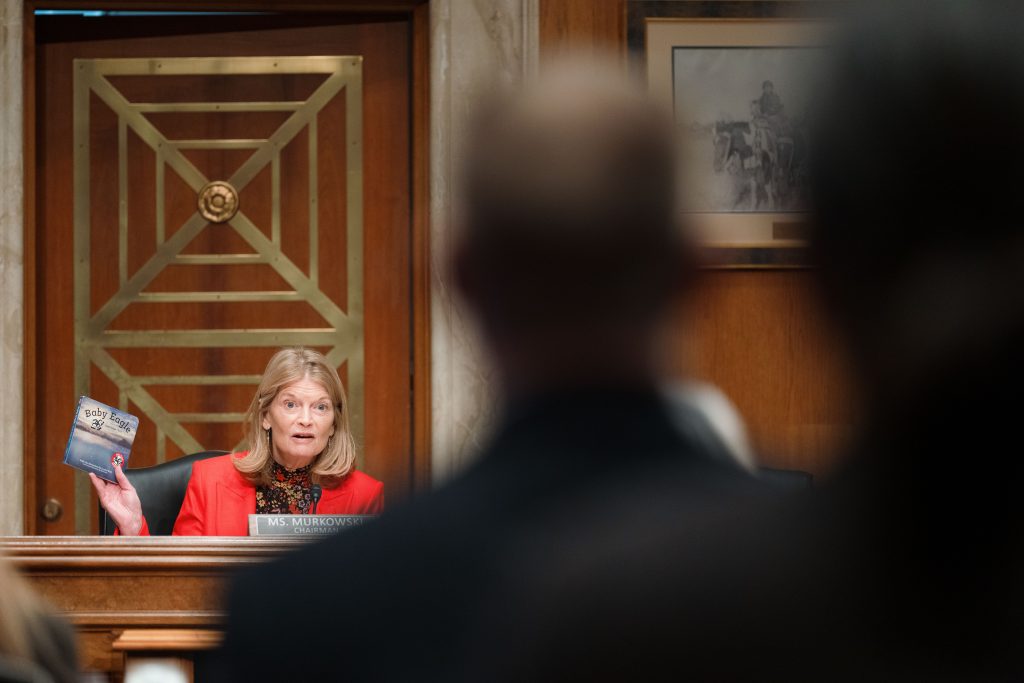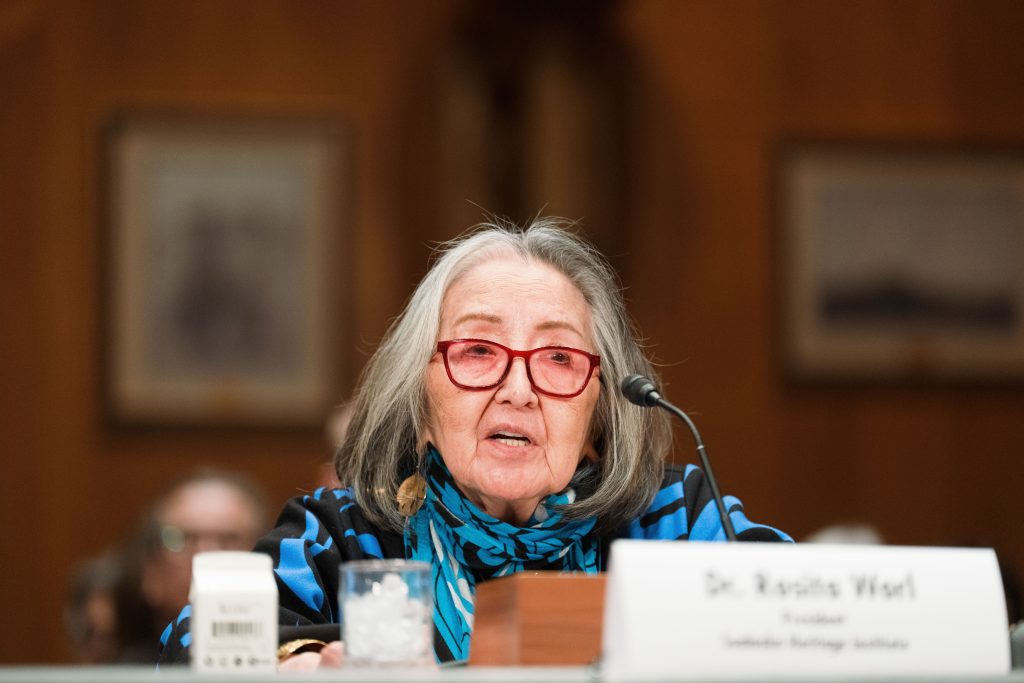U.S. Senator Lisa Murkowski (R-Alaska), Chairman of the Senate Committee on Indian Affairs, led an oversight hearing entitled “Native American Education – Examining Federal Programs at the U.S. Department of Education.”

“We have spent a lot of time in Committee talking about the Bureau of Indian Education, and for good reason. We are going to continue to do so. But we can’t lose sight of the fact that more than 90 percent of Native students across our country attend public schools. And the government fulfills its trust responsibility to those students through programs at the Department of Education, in addition to programs at the Interior, USDA, and HHS,” said Chairman Murkowski. “Given the major role that Department of Education funding plays in educating the next generation of Native students, I have heard—and I know many of my colleagues have heard—questions and concerns about recent proposals to alter or dismantle the U.S. Department of Education, as well as the recent Executive Orders calling for federal agency RIFs and reorganization plans. We’re here today to better understand the Indian Education programs at the Department of Education, how they impact Native students, families, and schools across our states, and why they must continue, and not be negatively impacted by these RIFs and reorganization plans. We are making real progress on the ground and we owe it to the Native youth across the country to make sure it is not interrupted.”
Video of Senator Murkowski’s opening statement can be found here.

Dr. Rosita Worl, President of the Sealaska Heritage Institute (SHI) in Juneau, Alaska, testified about the importance of the Alaska Native Education Program (ANEP). In her testimony, Dr. Worl shared how SHI uses the ANEP and other grant programs to further its mission to preserve and enhance the cultures of the Tlingit, Haida, and Tsimshian peoples of Southeast Alaska and to promote cross-cultural understanding. Dr. Worl emphasized the importance of quality education and the integration of Native culture into schools as essential for the survival of Alaska Native cultures and that programs like ANEP are largely responsible for the academic success fostered among Alaska Native students.
“I would like to add that the benefits of Native education programming are widespread, with non-Native students learning about our cultures and history, which has led to improved cross-cultural relationships. Coincident with these benefits, Alaskans have come to appreciate the value and richness of our region’s cultural diversity, a change from earlier periods in which suppression of Native cultures was the norm,” Worl said.
Dr. Worl’s full written testimony can be found here.
In addition to Dr. Worl, the following witnesses participated in the Oversight Hearing:
- MR. JASON DROPIK, Executive Director, National Indian Education Association, Washington, DC
- MS. SYDNA YELLOWFISH, Director of Indian Education, Edmond Public Schools, Edmond, OK
- MS. NICOLE RUSSELL, Executive Director, National Association of Federally Impacted Schools, Washington, DC
- MS. AHNIWAKE ROSE, President and CEO, American Indian Higher Education Consortium, Alexandria, VA
During the question and answer round, Senator Murkowski raised the possible impacts of moving Indian programs out of the Department of Education and the potential consequences of such a move. She acknowledged that, regardless of the department’s potential dissolution, the government’s federal trust responsibility remains. Senator Murkowski asked if the witnesses had any concerns on whether it might limit flexibility, hinder consultation processes, create new challenges, or alternatively if there could be any potential advantages to moving these programs out from under ED.
“The biggest challenge is, we don’t know what that plan is…I believe everyone here in this room – whether they’re here or not, and all the other ones – they want what’s best for communities; they want to see students thriving. I’ve not heard anyone say that they didn’t and they want to increase efficiency. We want to increase efficiency and make sure that money is getting to students, and getting to staff, and getting to communities. So, everyone’s on the same page on that.” Mr. Dropik responded, in part. “But, we do know that we have seen when actions have been taken without that consultation, then unintended consequences are a result, then services are disrupted, then staff are accidentally or inappropriately put on leave. Those are real consequences that have impact on people, staff, communities that they serve, and organizations.”
Senator Murkowski then noted the significant amount of Impact Aid that goes to Alaska, saying, “in the Iditarod area school district in Alaska, Impact Aid makes up about sixty-percent of the funding there,” and that, “in Alaska all of our school districts are very, very worried this fiscal year about their budgets.” She asked Ms. Russell to share the importance of Impact Aid funding, and any concerns she had on financially impacted schools.
“The move, the potential…proposal of moving some programs like Impact Aid, if the Department of Ed were be to be dismantled, one issue that we see would be very tough and would lead to delayed payments, potentially for years, is the fact that there are only nineteen…dedicated public servants who are experts, expert analysts, in the Impact Aid program office, who understand this very complicated program. And that staff would need to stay on top of this program to make sure that it continues to be handled in an effective and very efficient manner,” Ms. Russell responded, in part.
Senator Murkowski asked Dr. Worl if she had concerns about the potential relocation of the ANEP to an agency other than the Department of Education.
“I’m a fan of the way they operate, the knowledge that they have, the relationships that they have established with Native entities throughout Alaska, and also with our brothers and sisters in Hawaii…They hear our issues and they’re able to convey that to yourself, to our Congress people, and I think they help influence the directions of educational programs. So, I would be concerned, you know, that if it were shifted somewhere else… more than likely that’s not their expertise, and so there would be a lag, there would be a period where relationships would have to be established; where they would have to gain the knowledge about the complexity and the importance of education,” Dr. Worl responded, in part.
Video of each of Senator Murkowski’s questions during the hearing, and the witness’s responses, can be found here.
Video of the full Oversight Hearing can be found here.
The Committee will continue to accept written testimony until April 16, 2025. Testimony may be submitted to testimony@indian.senate.gov.
